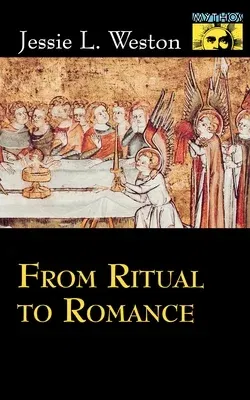Jessie L Weston
(Author)From Ritual to RomancePaperback, 9 May 1993

Qty
1
Turbo
Ships in 2 - 3 days
In Stock
Free Delivery
Cash on Delivery
15 Days
Free Returns
Secure Checkout

Part of Series
Mythos (Paperback)
Part of Series
Mythos: The Princeton/Bollingen Series in World Mythology
Part of Series
Mythos: The Princeton/Bollingen World Mythology
Part of Series
Bollingen Series (General)
Part of Series
Mythos: The Princeton/Bollingen World Mythology, 137
Part of Series
Bollingen Series (General), 651
Part of Series
Bollingen
Print Length
256 pages
Language
English
Publisher
Princeton University Press
Date Published
9 May 1993
ISBN-10
0691021074
ISBN-13
9780691021072
Description
Product Details
Author:
Book Format:
Paperback
Country of Origin:
US
Date Published:
9 May 1993
Dimensions:
20.19 x
13.26 x
1.68 cm
ISBN-10:
0691021074
ISBN-13:
9780691021072
Language:
English
Location:
Princeton
Pages:
256
Publisher:
Series:
Weight:
267.62 gm